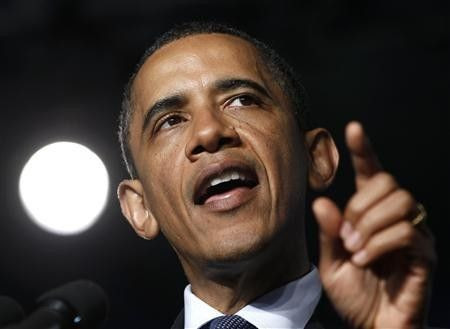White House Defends Legality of Libya Mission

The White House said Wednesday that President Barack Obama has the legal authority to continue U.S. military action in Libya, despite Congress not authorizing it.
In a 30-page report being sent to Congress, the Obama administration was to make the case that since U.S. forces are not engaged in sustained fighting, but are there, rather, in a limited, support role in the NATO-led bombing campaign, the president is well within his U.S. constitutional rights to direct the mission on his own, the Associated Press reported.
We are acting lawfully, said Harold Koh, the State Department legal adviser, who expanded on the administration's reasoning in an interview with White House Counsel Robert Bauer.
We are not saying the president can take the country into war on his own, Koh said. We are not saying the War Powers Resolution is unconstitutional or should be scrapped, or that we can refuse to consult Congress. We are saying the limited nature of this particular mission is not the kind of 'hostilities' envisioned by the War Powers Resolution.
The administration's defense of the Libya mission comes in response to a non-binding House resolution passed earlier this month that reprimanded Obama for failing to provide a compelling rationale for U.S. involvement in Libya.
On Wednesday, Speaker of the House John Boehner sent President Obama a letter yesterday pressing Obama to seek Congressional approval for the intervention in Libya.
The letter represents the latest round of sparring between Congress and the president over the extent of the commander-in- chief's authority to declare war.
The War Powers Act allows the president a window of 60 days in which he can commit U.S. forces to battle without Congressional approval. Absent such approval, the president has another 30 days to remove troops.
Boehner already staved off a House coup by representatives seeking a vote to bar U.S. forces from continuing the operation, and the letter expresses the continued frustration emanating from both sides of the aisle.
Demanding a legal explanation by Friday, Boehner wrote:
Give the mission you have ordered to the U.S. Armed Forces with respect to Libya and the text of the War Powers Resolution, the House is left to conclude that you have made one of two determinations: either you have concluded the War Powers Resolution does not apply to the mission in Libya, or you have determined the War Powers Resolution is contrary to the Constitution. The House, and the American people whom we represent, deserve to know the determination you have made.
© Copyright IBTimes 2025. All rights reserved.




















